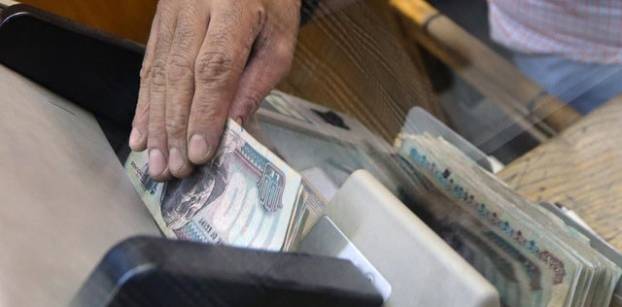In Cairo dealing rooms, uncertainty and confusion as pound floats

An employee counts Egyptian pounds in a foreign exchange office in central Cairo, Egypt, November 3, 2016. REUTERS/Mohamed Abd El Ghany
CAIRO (Reuters) – In a Cairo bank, foreign exchange traders cluster anxiously around a dealing terminal, preparing to make their first transaction since the central bank floated the currency.
"Should we engage?" one trader wonders. "What should we quote?" asks another.
Dealers have been thrown into turmoil by the central bank's Nov. 3 decision to let the Egyptian pound trade freely for the first time in order to boost competitiveness and unlock IMF loans and foreign investment.
After years of looking to the central bank for guidance, they scrambled to find their own prices in the first week of the float, contributing to wide spreads, volatile quotes and ultra-thin trading volumes as they cautiously tested the system.
At one point on Tuesday, bid and ask quotes for the pound against the dollar ranged from 16.65/17.35 at one bank to 17.80/18.30 at another. Until last week it was pegged at 8.8 to the dollar.
"We are not used to this. We are used to Daddy guiding us and setting the price," one trader said of the central bank's absence. "But Daddy is not here anymore."
Egyptian banks have experienced a more flexible exchange rate before, but have never had this level of freedom.
Between 2003 and 2013, Egypt had a managed floating system which allowed the central bank to intervene heavily in the currency market through two banks -- Suez Canal Bank and Arab African International Bank -- who acted as market makers.
With foreign reserves dwindling after the 2011 uprising that drove off tourists and foreign investors, the central bank began to intervene more aggressively to defend the pound against downward pressure.
From 2013 until last week, it kept the pound pegged in a tight range against the dollar, rationing dollar supply through central bank auctions that created a severe shortage and pushed companies to obtain foreign currency on the black market.
For three years, bank dealers recall, they rarely glanced at the price pages on their dealing terminals, which were mostly stable. Trading migrated to a booming black market in hard currency, where prices changed from one hour to the next.
But as markets opened on Sunday, the first trading day after the float, traders were glued to their screens watching bid and ask quotes change constantly.
"There is confusion, for sure, and that reflects in the pricing," said a banker at a private bank who, like most of his peers, declined to be named because of commercial sensitivities.
Competing for dollars
As the pound drifts lower to levels that are cheap enough to attract dollars into the interbank market, competition among banks seeking to hoover up greenbacks has become fierce.
Bank branches have been staying open until 9 p.m. to try to persuade ordinary Egyptians to sell their dollars, while many have turned to the former black market for their hard currency needs, sucking liquidity bank into the formal banking system.
"Banks are acting like a black market, raising prices on each other and stealing each other's clients by offering higher rates to buy dollars," one frustrated trader said.
Long gone are working days that began at 9 a.m. and ended in the late afternoon, as dealers work late into the night to source foreign currency for dollar-hungry clients.
"The price is created by demand and supply until we reach equilibrium... Giving guidance, that does not make any sense," a trader at a private bank said.
But uncertainty means it could take months for the interbank market to become fully functional and the pound to stabilise.
Bankers said there was no consensus on where the pound would stabilise, with some believing it might hit 20.
That has raised speculation that the central bank may step in, perhaps using state-owned banks to inject dollars once the first $2.75 billion installment of Egypt's IMF loan arrives.
The authorities expect to receive that money as early as next week, part of a $12 billion loan package they hope will avert an economic crisis and halt the slide in the currency.
"As long as there is a scarcity of dollars, they will keep raising prices like the black market was doing because they want to suck up dollar liquidity," said Abu Bakr Emam, head of research at financial firm Prime Holding.
"We have a crisis in liquidity and the central bank can resolve that."









facebook comments